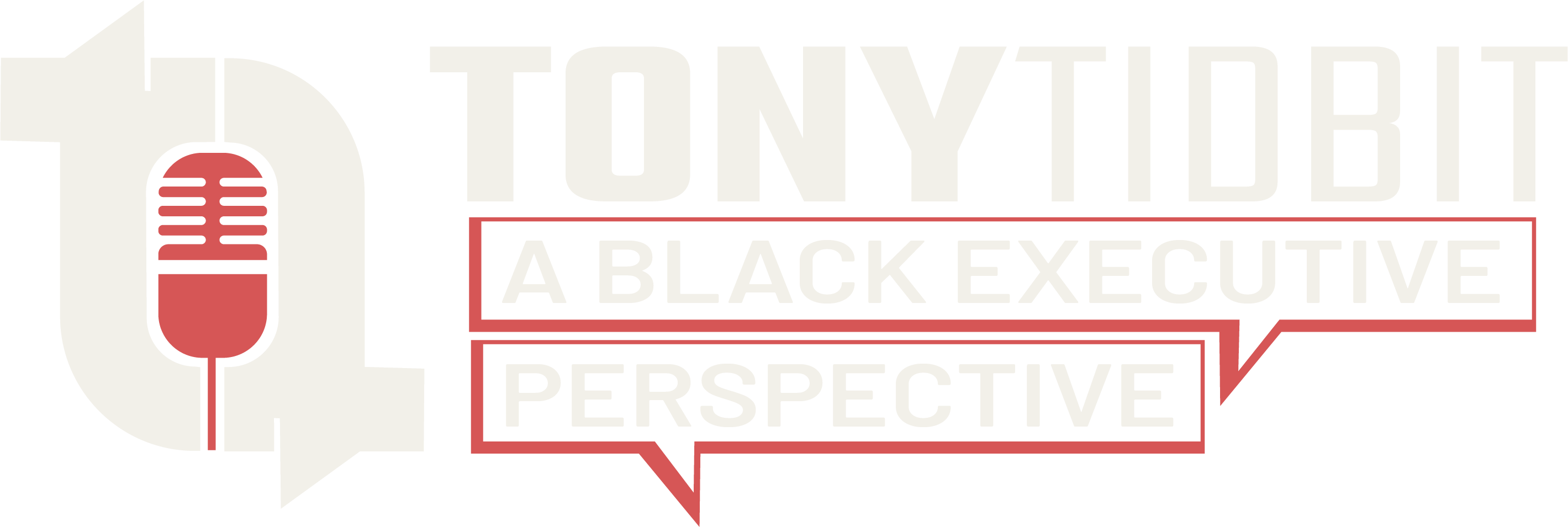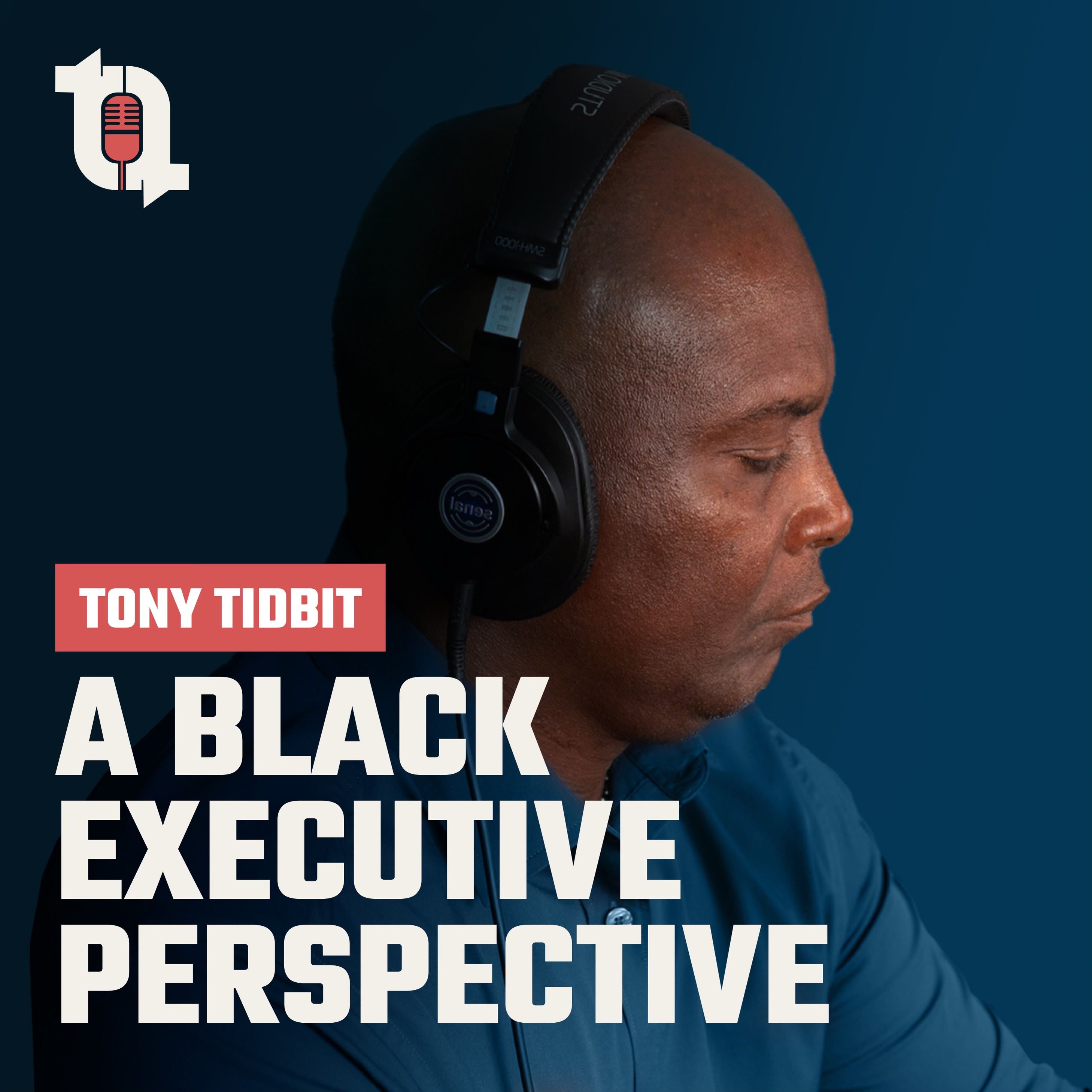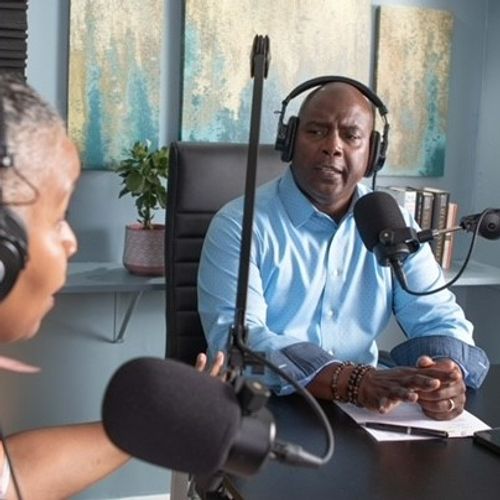Need to know with Dr. Nsenga Burton-Political Leaders and Their Immigrant Wives
Episode Title:
Episode Audio Link: https://podcast.ablackexec.com/episode/Need to know with Dr. Nsenga Burton-Political Leaders and Their Immigrant Wives
Episode Video Link:
In this episode of 'Need to Know with Dr. Nsenga Burton,' the focus is on the recent political developments surrounding the U.S. presidential race, particularly former President Donald Trump's selection of JD Vance as his Vice-Presidential candidate. Dr. Burton delves into the paradox of anti-immigrant sentiments within the GOP, noting that many of its leaders are married to immigrants, including Vance's wife, Usha, who has an impressive educational and professional background. The conversation extends to Vance's book 'Hillbilly Elegy,' exploring the cultural and socio-economic factors that shape the ideologies of disenfranchised white Americans. Dr. Burton encourages viewers to critically assess issues of class, education, and the pervasive nature of anti-Black racism and questions the pursuit of power by those aligned with white supremacist ideologies while being intimately connected with immigrant communities. The episode underscores the importance of understanding these complexities in the broader context of U.S. politics and civil rights.
▶︎ In This Episode
- 00:00: Introduction to Need to Know with Dr. Nsenga Burton
- 00:21: Political Drama: Trump's VP Pick JD Vance
- 01:56: Insight into JD Vance's Background
- 03:40: The Role of Class and Race in Politics
- 05:10: Supreme Court Diversity and Education
- 06:51: Anti-Black Racism and Global Perspectives
- 08:03: The Pursuit of Power and Proximity to Whiteness
- 11:13: Concluding Thoughts and KeyTakeaways
🔗 Re sources
Links and resources mentioned in this episode:
🔔 Listen and Subscribe
Listen to this episode and subscribe for future updates
subscribe to A Black Executive Perspective podcast on
- YouTube Podcasts
- Apple Podcasts
- Spotify Podcasts
- Amazon Music
- Other platforms or by searching "TonyTidbit"
if you like what we're doing and would like to support us, here's some ways you can help us continue the uncomfortable conversations that drive change
- subscribe to our newsletter
- give us up to a 5 star review on Apple Podcasts
- share an episode with a friend, family member or colleague
🗣️ Follow @ablackexec
follow us across social media @aBlackExec
⭐️ Follow @TonyTidbit
follow Tony across social media @TonyTidbit
This episode was produced by TonyTidbit ™ . Copyright © 2024 A BLACK EXECUTIVE PERSPECTIVE LLC. All rights reserved. No part of this podcast may be reproduced without prior written permission. For permissions, email podcast@ablackexec.com .
Transcript
A Black Executive Perspective now presents Need to Know
2
:with the award winning hyphenated Dr.
3
:Nsenga Burton.
4
:Dr.
5
:Burton.
6
:What do we need to know?
7
:Dr. Nsenga Burton: Hello and
welcome to Need to Know with Dr.
8
:Nsenga Burton.
9
:I am happy to be here today to give you
some facts that you may need to know.
10
:Unless you've been living under
a rock, you have been following
11
:the political drama that has
played out as it relates to the U.
12
:S.
13
:presidential race.
14
:One of the important stories that
came out over the weekend, uh, is
15
:our former President, Donald Trump's
Selection for Vice President.
16
:And that is JD Vance.
17
:He's an author.
18
:He's a Senator from Ohio.
19
:Uh, and he's married to a very dynamic
woman, uh, an immigrant in fact.
20
:So, um, I find it interesting that
we have so much anti immigrant, uh,
21
:legislation being proposed from the GOP
when many of their leaders are actually
22
:married to immigrants, uh, including
our former President, Donald Trump.
23
:But, um, I just want to tell
you a little bit about her
24
:because she is quite dynamic.
25
:Um, she is.
26
:Uh, the daughter of Indian immigrants.
27
:Um, she was, uh, she
attended Yale for law school.
28
:She went to undergrad at Cambridge,
so she's very well educated.
29
:Um, she previously served as a law clerk
for chief justice, John Roberts Jr.
30
:of the U.
31
:S.
32
:Supreme court, uh, judge Brett
Kavanaugh, then of the U.
33
:S.
34
:court of appeals for the
district of Columbia circuit.
35
:As you know, he is also a Supreme
court justice and an, uh, And judge
36
:Amul Thapar, um, then of the U.
37
:S.
38
:district court for the
Eastern district of Kentucky.
39
:Um, that is what she has
been doing with her career.
40
:And then she became a partner
in a very important law firm as
41
:well, which she resigned from.
42
:Once the announcement was made, she grew
up in San Diego, California, uh, and again
43
:is the daughter of Indian immigrants.
44
:So what's interesting about this pick, JD
Vance, I think more people know more about
45
:him based on his book, Hillbilly Elegy.
46
:And I will say this, you
should read Hillbilly Elegy.
47
:I've read it.
48
:Um, it's an important book because it
gives you insight into where he comes
49
:from and what, uh, His life experiences
and how they have informed his ideology,
50
:which, of course, informs his policies.
51
:Um, he'll really elegy
is good in terms of.
52
:looking at the type of culture that
emerges from disenfranchised whites.
53
:These are whites who are mostly
impoverished, have been impoverished and
54
:have not been able to capitalize on white
privilege that exists in this country.
55
:Um, and so class is widely discussed in
here, but what's really interesting and
56
:why people should read the book, um, if
you haven't already, it's Is because it
57
:really, um, speaks to the behaviors, the
belief system and the practices of those
58
:who grew up in these regions, um, like
JD Vance who grew up in, uh, between,
59
:uh, Dayton and Cincinnati, um, which is
a very impoverished place and also, uh,
60
:home of the Ku Klux Klan in Ohio as well.
61
:Um, so you get a lot of insight into what
drives people, um, particularly white.
62
:Uh, men, um, who are angry and, uh,
disillusioned and feel that they have
63
:not, um, been given, uh, their rightful
place in American history, in American
64
:present and in the American future.
65
:Um, and so, you know, some people might
say, well, not sure why if in fact you,
66
:um, you know, have been in this country.
67
:But if, you know historically,
uh, the issue of class.
68
:Is very important here and, um, whites
have often been able poor whites have
69
:often scapegoated, uh, people of color,
black people, uh, native indigenous
70
:populations, um, and now immigrant
populations, uh, for the lack of,
71
:um, for their inability to capitalize
on what has really been a place that
72
:had very little competition for them.
73
:Um, in the, in the workplace
based on, uh, discriminatory laws
74
:that privileged other groups, um,
particularly white men over all others.
75
:So it's a really important read to
get into the psyche of if you care,
76
:some people don't, but if you care
and you want to know what is driving,
77
:um, you know, these supporters of
Trump, these supporters of, uh, kind
78
:of white supremacist ideology, these
supporters of, um, You know, what I
79
:would call a neo form of segregation,
um, the supporters of policies that
80
:erode civil rights protections and
that even erase, uh, people of color,
81
:immigrant communities from history
books and the many contributions that
82
:they've made, uh, to our country,
um, over the past, um, I would say
83
:over hundreds of years, if you're
talking about black folks, for sure.
84
:Um, so I think it's
interesting to think about how.
85
:This type of networking works, right?
86
:You've seen a lot of people
from Yale School of Law
87
:represented on the Supreme Court.
88
:When we think about diversity, a lot
of people think immediately gender
89
:diversity, racial diversity, sexual
identity, things of that nature, but
90
:they very rarely think geographically.
91
:They very rarely think about education.
92
:Um, is the Supreme Court really diverse?
93
:If most of the people on the Supreme
Court hold degrees, law degrees
94
:from the same schools, that's a
question you should ask yourself.
95
:Um, is it diverse?
96
:If you are getting people from a
particular law school that has, uh,
97
:that seems to have, um, it seems
to be producing people who are in
98
:support of, uh, disenfranchising.
99
:Populations of people historically and
otherwise, um, you know, it's interesting
100
:to look at the graduates of particular
schools, uh, and to see what they do.
101
:So, you know, to see that, um, J.
102
:D.
103
:Vance's wife, Usha and I think
I'm pronouncing it right.
104
:I think it's, Usha um.
105
:You know, is brilliant, uh, extremely
well educated, uh, is the child of
106
:immigrants, uh, is from California
and is partnered with someone like J.
107
:D.
108
:Vance.
109
:Um, I think you have to ask
those questions as well.
110
:Right?
111
:What does it mean?
112
:Um, in that way?
113
:One of the things I also wanted to
pose for you is also think about
114
:why Usha would be a more desirable.
115
:Indian, um, or person of Indian
descent, uh, then our current
116
:Vice President, Kamala Harris,
um, and Kamala kept her name.
117
:She did not change it.
118
:Uh, which is interesting when you
think about Nikki Haley and you think
119
:about other people who are of Asian
or East Indian descent, um, but,
120
:uh, you know, something that is,
Not talked about enough is the fact
121
:that anti black racism is worldwide.
122
:It's not something that just happens here.
123
:You know, I've met people who didn't know
that slavery happened all over the world.
124
:They think it just happened
in the United States.
125
:I've met people who think that Jim Crow
just happened in the United States.
126
:Um, you know, if you know anything
about apartheid, which is actually
127
:based on Jim Crow, if you know
anything about, um, Uh, the Holocaust.
128
:I mean, like, you know, it's happened all
over the world for long periods of time
129
:and to lots of different groups of people.
130
:Um, and so when you think about
anti black racism, um, which is
131
:pervasive, uh, in many cultures
around the globe, especially, uh,
132
:in India, uh, it is not unusual to
me that you would meet some people.
133
:Um, and of course, it's not all people.
134
:It's not all people, but some
people who are from that, those
135
:parts of the world, uh, who hold
those beliefs and those ideas.
136
:I don't know that to be
the case, um, with Usha.
137
:Um, I hope it isn't the case with Usha um,
but when you think about the pursuit of
138
:power, In the United States, and what it
looks like, um, when you see so much power
139
:residing and white men still in 2024, even
though people panic about, oh, they're
140
:not going to school in the same numbers.
141
:They're not getting the CEO jobs
in the same numbers, although they
142
:still hold, like, 90 percent of them.
143
:They're not getting, you
know, it's like, oh, so it's
144
:supposed to 100 percent in 2024.
145
:Right.
146
:Um, You know, oh, whoa, is the,
uh, and what about these poor white
147
:men, which are important, right?
148
:We need to think about poor white people.
149
:They are the majority of the
impoverished in this country,
150
:which nobody wants to talk about.
151
:Um, they use most of the serVices
that are going to be cut off.
152
:Um, if the GOP or when the GOP
is back in the white house, uh,
153
:they actually make use of those
serVices, uh, including disability.
154
:Uh, and it definitely, um, when
we talk about, uh, food stamps and
155
:things of that nature, the majority
of people who get those, uh, kinds
156
:of serVices are white Americans.
157
:Um, and so when you make your
most vulnerable and visible,
158
:you know, that's when you get
books like the Hillbilly Elegy.
159
:From J.
160
:D.
161
:Vance, who tries to elevate the struggle
of these folks and their thoughts and
162
:their culture so that we can better
understand this population of America.
163
:But it's also interesting
that while doing so.
164
:You will also be pursuing power by
partnering with someone who is part of
165
:literally the upper echelon, the 1%.
166
:Um, and has been for generations,
um, in order to do so.
167
:Right?
168
:So what does it mean?
169
:Um, when we think about whiteness
and these are questions you should
170
:ask yourself, what does it look like?
171
:Um, why are people so ready and willing
to scapegoat particular populations,
172
:whether it's black Americans in this
country, whether it's immigrants in
173
:this country, uh, while partnering,
like, building lives with, having
174
:children with, creating multiple
generations with those very same people.
175
:Um, so these are the questions
that you want to ask, um, and you
176
:also want to ask those folks who
are the children of immigrants.
177
:What is it about this pursuit of power?
178
:Um, or this proximity to whiteness that
allows you potentially, um, because
179
:I don't think that anybody's a dupe.
180
:I think this people make decisions.
181
:Um, but that allows you to.
182
:Partner with someone or to partner
with people and be in those kinds of
183
:communities that are anti you, who
you are, where you came from your
184
:lived experiences the experiences of
many people who have made significant
185
:contributions to this country and
continue to do so including our
186
:You know, uh, Vance's, uh, wife.
187
:Yeah, she's, she's pretty
dynamic and interesting.
188
:Um, so I just wanted to give you that for
a need to know, um, what you need to know.
189
:Anti black racism is pervasive.
190
:It's all over the world is not just
happening here in the United States.
191
:Be what you need to know is.
192
:You know, one of the drivers for
why people want to, um, get rid of
193
:Joe Biden is because there is a real
possibility that if he is elected, that
194
:Kamala Harris will become president.
195
:Um, and she is an immigrant.
196
:She's a children of immigrants.
197
:Um, she is Jamaican, black.
198
:Uh, she is Indian, right?
199
:East Indian, um, Asian.
200
:So, um, that's a real possibility
that you need to think about, right?
201
:What is this big push to get Biden out
and to replace him and her, which we
202
:talked about a little bit in last week's
episode, if you want to revisit that.
203
:Um, something else you need to know
is that, um, JD Vance, um, and the
204
:GOP, they talk a very specific game
about immigration, but then they marry
205
:these dynamic immigrant women, um,
you know, like his current wife, Usha.
206
:Um, which I hope I'm pronouncing her
name correctly, if I'm not, I'm sorry.
207
:Um, so I want you to know that too, as
they push this anti, uh, immigration,
208
:anti affirmative action, anti all these
anti DEI, you know, uh, SHRM just got
209
:rid of equity in, in, um, their policies.
210
:Um, but while they're pushing these
initiatives, they're also partnered with
211
:people who benefit from these initiatives.
212
:Um, so these are things
that you need to know.
213
:So when we are talking about.
214
:These issues.
215
:We're not only talking about black people.
216
:We're not only talking
about black Americans.
217
:Um, and so you need to know that too.
218
:So thank you for tuning in
to need to know with Dr.
219
:Nsenga Burton.
220
:I will see you next week on the
Black Executive Perspective Podcast
221
:and tune in to all of our podcasts,
not just me, Tony Franklin's
222
:amazing and all the other folks.
223
:Um, but learn something, um,
think about things critically.
224
:and stay engaged.
225
:I'll see you next week.
226
:BEP Narrator: A black
executive perspective.





